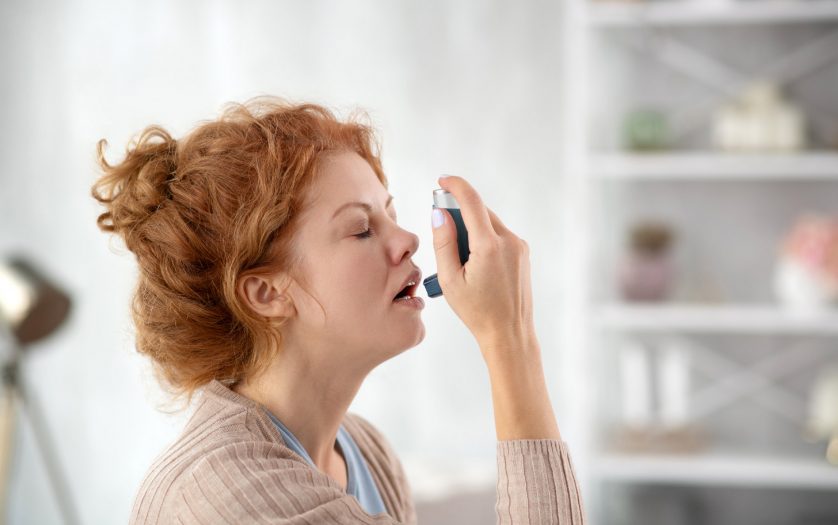
Asthmatics who have their illness well under control have less severe COVID-19 outcomes than those with uncontrolled asthma, according to a large study conducted by USC and Kaiser Permanente Southern California.
The findings, published in The Journal of Allergy and Clinical Immunology: In Practice, suggest that asthma patients—especially those who require clinical care—should continue taking their asthma medications during the COVID-19 pandemic.
“Anyone with asthma should continue to work with their health care provider to ensure they are getting the best treatment for their asthma, which leads to better asthma control and decreases the likelihood of severe COVID-19 outcomes,” said Zhanghua Chen, co-lead author of the study and an assistant professor of population and public health sciences at the Keck School of Medicine of USC.
Approximately 25 million Americans have asthma, a potentially serious respiratory condition in the face of widespread COVID transmission. The asthma numbers equal about 1 in 13 Americans, including 8% of adults and 7% of children.
The USC/Kaiser Permanente collaboration gave researchers a chance to evaluate the impact of breathing disorders on COVID outcomes in a population with equal access to health care.
Researchers collected data on 61,338 COVID-19 patients using electronic medical records from Kaiser Permanente Southern California from March 1 to Aug. 31, 2020. The mean age was 43.9; 54% were women and 66% had Hispanic race/ethnicity.
Medical codes were used to determine if these patients had asthma or chronic obstructive pulmonary disease prior to their COVID-19 diagnosis. Researchers also separated the data further, with the “active” group accounting for any patients who had a clinical visit for asthma within the last 12 months and the “inactive” group accounting for those who had not.
A total of 2,751 patients were in the inactive asthma group versus 2,775 in the active group. Additionally, 820 patients had a history of COPD. Patients in the active asthma group had significantly higher odds of hospitalization, a need for intensive respiratory support and ICU admission within 30 days of COVID-19 diagnosis compared to those with no history of asthma or COPD.
A history of COPD was associated with a higher risk of hospitalization, need for intensive respiratory support and death within 60 days from COVID-19. Notably, researchers did not see a higher likelihood of mortality within 60 days for the active asthma group.
“This study went beyond examining asthma’s impact on COVID-19 outcomes and instead focused on how COVID-19 outcomes might change for asthma patientsdepending on their level of asthma control,” said study author Anny H. Xiang of the Kaiser Permanente Southern California Department of Research & Evaluation.
“We also saw that even in patients with active asthma, if they were using asthma medications their odds of worsened COVID-19 outcomes decreased, which demonstrates just how important these medications are.”








